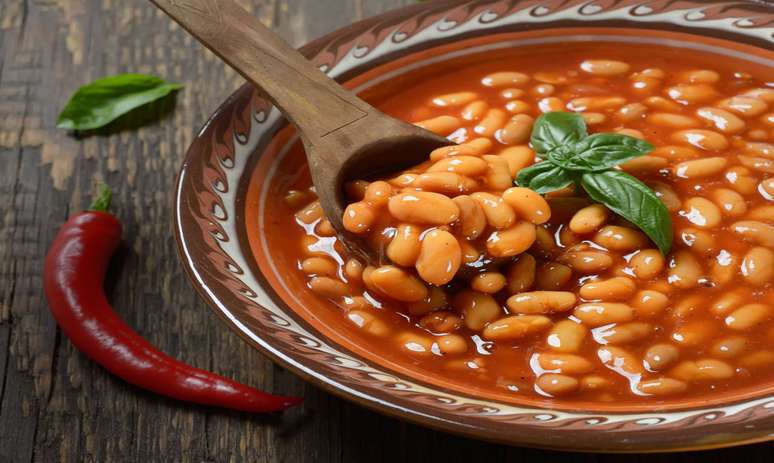A Brazilian study found that frequent bean consumption was associated with a lower risk of weight gain and obesity
Beans are a practically indispensable staple in the Brazilian diet, whether in the traditional company of white rice, in broth or in the delicious feijoada. However, according to a study by the Federal University of Minas Gerais (UFMG), the trend is that food is less and less consumed in Brazil.
According to the survey, by 2025, the vast majority of Brazilian adults will consume beans on an irregular basis (one to four days a week). In the analysis by gender, it was possible to observe that women already ate less than five times a week in 2022. For men, the prediction is that this will change from 2029.
This change can directly affect the weight of the Brazilian. That’s because researchers have discovered it a low-bean diet is 10% more likely to become overweight and 20% more likely to become obese. Those who consume beans regularly (five to seven days a week) are 14% less likely to be overweight and 15% less likely to become obese.
The study analyzed data from the Surveillance System of Risk Factors and Protection of Chronic Diseases by Telephone Survey (VIGITEL), conducted by the Ministry of Health. Interviews with more than 500,000 adults, conducted from 2009 to 2019 were considered.
What is the relationship of beans to weight gain?
The association between bean consumption and weight, the experts note, could be the result of poor food choices made by those who gave up or reduced their food intake.
“When beans are consumed, the individual brings other healthy foods to the table, such as rice, vegetables, salad, and even meat, composing a nutritionally balanced dish. When one stops eating beans, one often makes poorer food choices, which have a ‘high amount of calories, for example, which can lead to weight gain in the adult population,” explains Fernanda Serra Granado, doctor of the Graduate Program in Public Health at the UFMG Faculty of Medicine and author of the thesis that led to the study.
She points it out too beans are an indicator of the quality of the diet, because it has an excellent nutritional profile. Therefore, it contributes to the proper functioning of the organism and to the health of the population. ‘Moreover, it is often an essential element for food safety,’ says the researcher.
Like other legumes, beans are high in plant protein, fiber, B vitamins, iron, calcium, potassium, phosphorus, and zinc. There are at least 7 types of beans and most are low in fat. They are similar to meat in nutrients, but with lower levels of iron and unsaturated fat. They also contain antioxidants that help prevent cell damage and fight disease, which are important for tissue regeneration and muscle building. The fibers in beans also offer benefits to the digestive system.
Source: Terra
Ben Stock is a lifestyle journalist and author at Gossipify. He writes about topics such as health, wellness, travel, food and home decor. He provides practical advice and inspiration to improve well-being, keeps readers up to date with latest lifestyle news and trends, known for his engaging writing style, in-depth analysis and unique perspectives.









